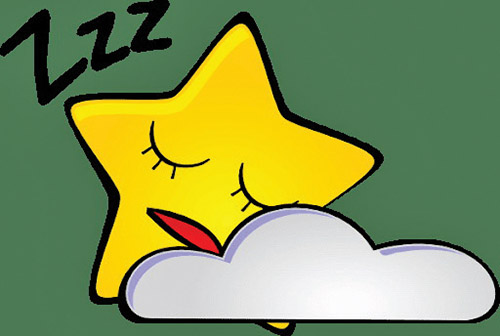
A few years back, Shavuot came on a dark night. Dark as the black coffee people would be drinking to stay awake that night. But I also had a dark feeling. Something just did not seem right.
You see, I am not just a maggid. As regular readers know, I also do a little detective work on the side to help pay the bills. Those tuition bills add up, you know.
In this case, the shul gabbai had asked me to come begin the evening off with a few light maggid stories. Then others would speak throughout the night, culminating in a scholarly final speech by the rabbi right before sunrise and Shacharit.
Things started off fine. A good story still brings in the people. But there was still a while to go before the rabbi’s talk, and people were naturally starting to nod off. Eyelids were starting to droop like four-day old aravot.
The gabbai was on the case, though. He kept bringing coffee around for everyone. He was especially solicitous of the rabbi, making sure that he always had a fresh cup so he could keep going until it was his turn to speak. He encouraged the rabbi by noting all the people who had come to hear him.
It seemed to be a losing battle, though. The congregants dropped off in their seats one by one—you could count them off just like the days of the Omer. Some had their heads down on tables, some just lolled back. It was not a pretty sight. But the gabbai did not seem to lose energy or stop trying to encourage everyone and bringing them coffee, especially the rabbi.
Now, I should mention that I never drink the stuff anymore. I’m a natural insomniac, which comes in handy as a detective. And I am used to late stakeouts and working nights. So soon enough, the gabbai and I were the only ones fully conscious. Yes, even the rabbi had peacefully drifted off into slumberland.
The gabbai was placid as he announced, “We expected the rabbi to speak now, but it seems that he is unavailable. Luckily, I am prepared to step in, having prepared a very detailed lecture analyzing the dikduk and meter of later Akdamus, with a focus on Aramaic morphology.” He strode to the lectern purposefully. I might have expected a few people to excuse themselves at the announcement of this topic, but no one was awake to do so. He had a captive audience.
He launched into his topic, as soporific as I expected. His monotone delivery did not help. A few minutes into the lecture I decided that even I would need some coffee to get through this. I got up and poured myself a cup. I breathed it in first to inhale its aroma. Something was off. I sniffed it again.
“Wait,” I called out. “This coffee is… decaf!”
The gabbai gave me his best glare and shush. It was a good one; he clearly had a lot of practice. But I continued anyway.
“Stop! This gabbai double-crossed us all! He should not be speaking. He was using decaf to purposely make sure that the rabbi and everyone else fell asleep!”
He knew I had him. “Ha ha—that’s right! Tonight I am going from gabbai… to rabbi! No more handing out kibbudim; now the kavod is all mine! For years I have been trying to talk to people about Akdamus dikduk; now I have a rapt audience and no one is even talking.”
This gabbai had gone bonkers. I guess the stress of managing the aliyot, handling complaints about the nusach, and shushing all the talkers had finally gotten to him. He tried to make a run for it, and he had a head start. But I knew what I had to do. I picked up a cheesecake, aimed, and let it sail. Caught him right in the face, and he went down like, well, like a deflated cheesecake.
“Don’t you know your Jewish history?” I asked him almost reflexively. “Of course I could tell it was decaf. Jews have been involved in the international coffee trade since it was first introduced to Europe.” I was in for a surprise, though; unlike most of my nemeses, this gabbai knew his stuff.
“Of course,” he said. “The first coffee house in Europe was opened in 1632 in Livorno, Italy, by a Jewish merchant. England’s first coffee house was the Angel Inn in Oxford, opened in 1650 by a man known as ‘Jacob the Jew.’ Then another Jew named Cirques Jobson opened a second Oxford coffee house, the Queen’s Lane Coffee House, the oldest still-running coffee house anywhere in the world.”
I continued. “Yes, and it was one of the popular commodities traded on the early Amsterdam bourse, where Jews had a prominent role in developing the modern trade-based economy. This brought tolerance in its wake for Jewish citizens in the Netherlands and then England.”
“But more relevantly,” said the Gabbai, “the minhag of staying up all night on Shavuot began in the mid-1500s in Sephardic lands under Ottoman rule, coinciding with the spread of coffee consumption in the Ottoman Empire.”
“So that must be where you got the idea for your fiendish plot!”
“And it would have worked too, if not for a meddling maggid!”
By this time the rabbi had woken up and joined the conversation. The rabbi was willing to forgive, as long as the gabbai would take some time off from his duties, get some psychological counseling, and next time ask for some help picking lecture topics of more interest to a general audience. I wish him luck, so I hope he sticks to Jewish history.
It was a strange Shavuot. But all in a night’s work for the Maggid of Manalapan.
By Dan Barenholtz













